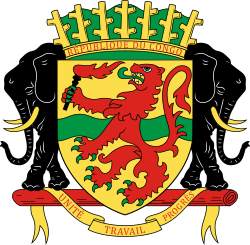| ||||||||||||||||||||||
| Results | ||||||||||||||||||||||
|---|---|---|---|---|---|---|---|---|---|---|---|---|---|---|---|---|---|---|---|---|---|---|
| ||||||||||||||||||||||
| Source: African Elections Database | ||||||||||||||||||||||
 |
|---|
A constitutional referendum was held in the Republic of the Congo on 8 December 1963. The new constitution created a one-party state and set the presidential term limit at two terms. It was approved by 86% of voters, with a 91.7% turnout. [1]